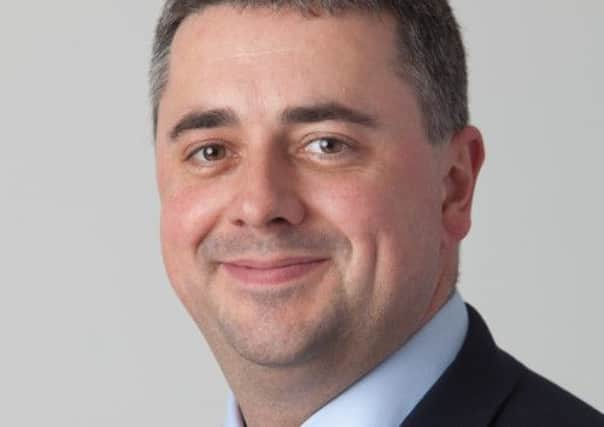Interview: Stewart Wingate, Gatwick Airport


It’s not that they are at loggerheads with each other, simply that they don’t support the same football team. “I am with Newcastle United in a family of Sunderland fans,” jokes the Durham-born chief executive of Gatwick Airport.
He is now dealing with rivalry among former close relations of a different kind. At issue is which – if any – of the London airports will get an extra runway. Attention has so far focused on Heathrow, but Gatwick and Stansted fancy their chances of landing the prize.
Advertisement
Hide AdAdvertisement
Hide AdAll were once owned by the same company – BAA – but since the competition authorities ordered a break-up they are now bidding against each other for extra business.
Wingate was in Scotland last week briefing business leaders on Gatwick’s case for a second runway and says he was received positively.
“They seemed to appreciate that we had come up to see them and speak to them face-to-face,” says Wingate, who was accompanied by two of his Gatwick colleagues for talks with Edinburgh Chamber of Commerce, the Scottish Council for Development and Industry (SCDI) and the transport minister Keith Brown. The delegation intends to return to Scotland for discussions in Glasgow and elsewhere.
Gatwick’s case is gathering support, says Wingate. He is convinced that it is cast iron, with few drawbacks. It was acquired by Global Infrastructure Partners in 2009 and the new owner set about a complete makeover of its operations, from security to shopping facilities.
It has focused on improving waiting times and punctuality and is looking at how it expands and offers more routes to passengers. The addition of another airstrip is the obvious way ahead.
“When we were owned by BAA the whole debate focused on Heathrow and it still does to a large extent. Once we were independent, we were able to look at it and ask why the extra runway should not be built at Gatwick.”
The airport has produced a document titled A Better Solution for London & the UK, which sets out its vision of three competing major London airports, each with two runways, complemented by London City for business traffic and Luton and Southend mainly for leisure.
Wingate says this would solve the capacity issue for a generation, provide more competition between airports and airlines, and in turn benefit the passenger.
Advertisement
Hide AdAdvertisement
Hide AdStansted, he believes, is a non-starter for the time being as it would struggle to raise the finance. That leaves it as a straight fight between the other two.
Crucially, Gatwick scores higher than Heathrow on a number of measures, he says.
Noise impact at Heathrow also already exceeds all other hub airports in western Europe added together, affecting 240,000 people against just 3,500 at Gatwick.
Whereas most airport expansions are opposed locally, Gatwick’s plans have the support of West Sussex County Council. It is also gaining a sympathetic hearing from MPs at Westminster, who are being persuaded by the environmental and cost advantages Gatwick says it can deliver.
A second runway at Gatwick would cost between £5 billion and £9bn, while Heathrow’s third runway has been priced at £18bn, largely because of the need for tunnelling and property purchases. It would also require government subsidy, whereas Gatwick would be privately funded.
The Scotsman understands that these costs would see landing charges hiked at Heathrow by some margin.
Wingate explains that Gatwick could build its runway five years earlier than Heathrow.
He is encouraged by the initial level of support from Scotland. “They gave us a good hearing. What came across was that they want a choice and they see the third runway at Heathrow as difficult to deliver. There was a feeling that Heathrow is exaggerating the hub argument.”
Advertisement
Hide AdAdvertisement
Hide AdHe is opposed to the hub idea, believing that it encourages the sort of monopolistic practices that led to the break-up of BAA.
He says it is best to have a series of airports around big cities as is the case in Paris, Frankfurt, Istanbul and New York. He notes 40 cities which do not follow the hub model.
He acknowledges that Heathrow is deemed the natural connection for travellers through London but was delighted last week to hear how many business people were using Gatwick airport.
The figures back this up. Last year 1.2 million flew Edinburgh-Heathrow against 700,000 using Gatwick, and 830,000 travelled between Glasgow and Heathrow, compared to 608,000 flying through Gatwick.
Sir Howard Davies, who is heading a commission looking into airport capacity, said last week that more runway capacity would be needed in London to cope with growing demand.
Heathrow handles 70 million passengers a year and Gatwick 35 million, a figure that could rise to 90 million by 2050 if had the second runway.
“This debate has swung towards us over the last year,” says Wingate, “We think we are beginning to have an impact on opinion.”